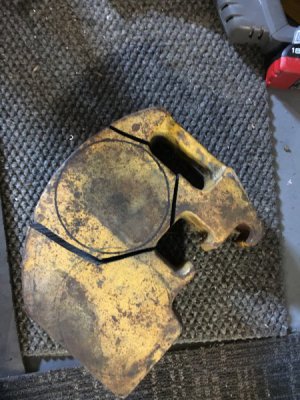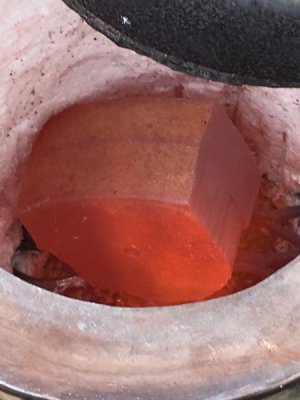I actually had a write up on machining tractor suitcase weights. The ones I harvested were ford weights. About 4” thick 10” square.60-70 vintage. When cutting some spots cut okay then some spots were very hard. Felt like I dulled every blade in the shop to get it cut out. Using a carbide endmill it cut but felt a lot of resistance. Not what I’d expect from cast. After asking for some advice on the forum I threw the chunk in my forge while doing some casting and got it to a red hot temp. Then I let it cool overnight in the forge. I have yet to machine the part again but my hopes are it will do better. I have a newer JD plate 1 1/4 thick and a 2’ square. Says made in USA on it so I’m hoping it’s good.





